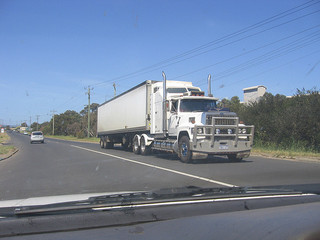Electronic Logging Devices Could Be Mandated by the Federal Motor Carrier Safety Administration

Tired drivers are a real problem in the logistics industry. Truck drivers are paid by the amount of goods they are able to transport in a certain amount of time. So, some drivers push themselves to meet tight goals by sacrificing sleep. The Federal Motor Carrier Safety Administration (FMCSA) recognizes the safety hazard this presents and is working on new rules mandating the use of electronic logging devices. This will enforce that drivers take the breaks they need for sleep.
Joe DeLorenzo, Director of FMCSA’s Office of Enforcement and Compliance, said that the final rules will be release some time this year. The rules will also create uniformity in the industry. For instance, there are several different logging devices that trucking companies can choose to use, but they don’t all work the same way. That makes training a little more difficult to handle. The FMCSA wants to make things easier for truck drivers so that they will actually use the logging devices.
Electronic logging devices are different than some on-board tracking devices that already exist because they require manual use. This gives truck drivers more accountability for their jobs and driving accidents. If truck drivers are required to log all of their activity, including sleeping time, safety inspections, and other routine behaviors, there would be less paperwork disputes and citations for unsafe driving. It would also reduce the amount of accidents that take place.
The FMCSA has found a lot of discrepancies when it comes to crash reports, too. The police are reporting one thing while truck drivers are reporting something else. The electronic logging devices would help to clear up some of the miscommunications and discrepancies. This would allow for overall better driver accountability and transportation safety. There would also be less delays in companies’ supply chains.





